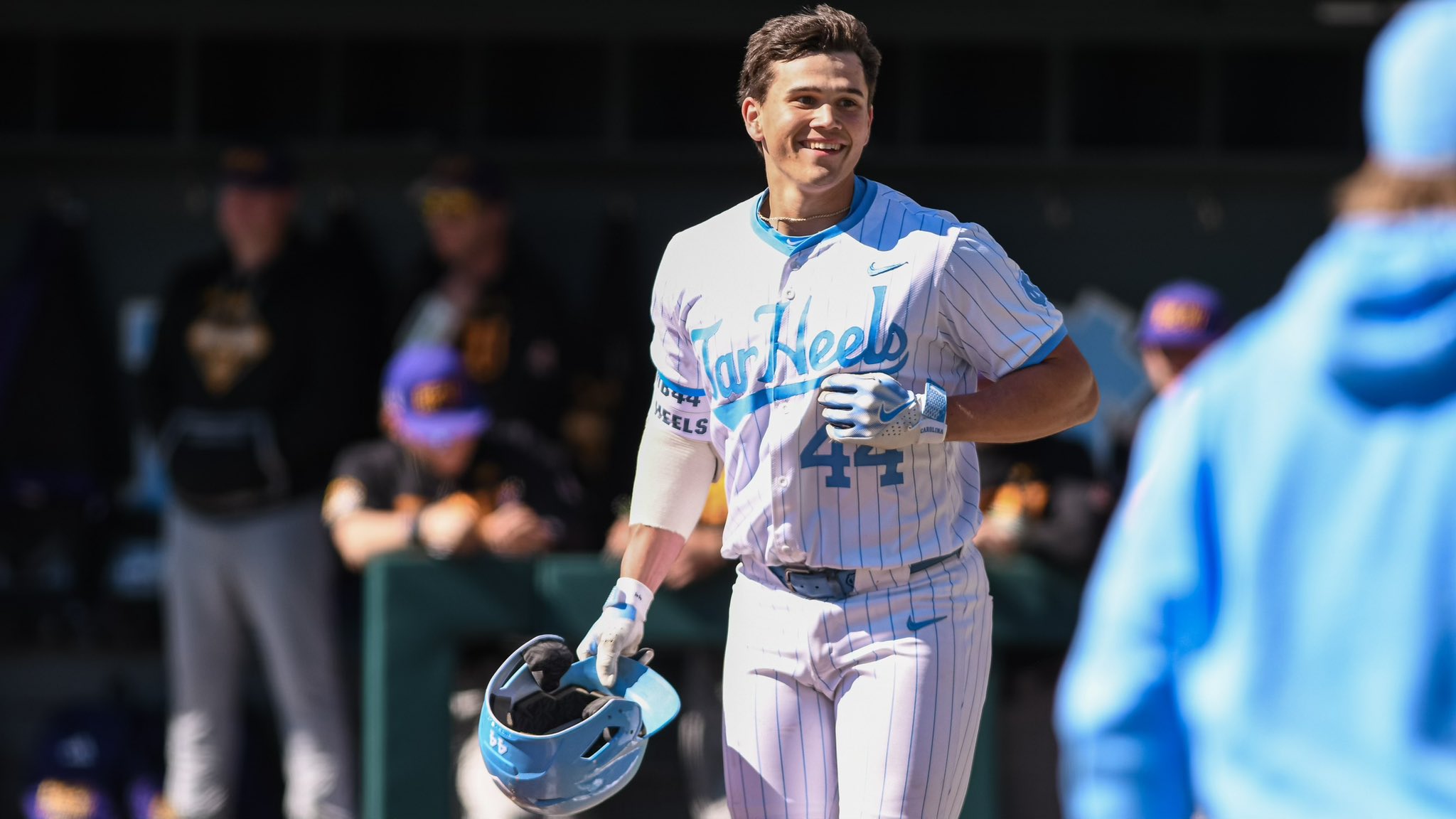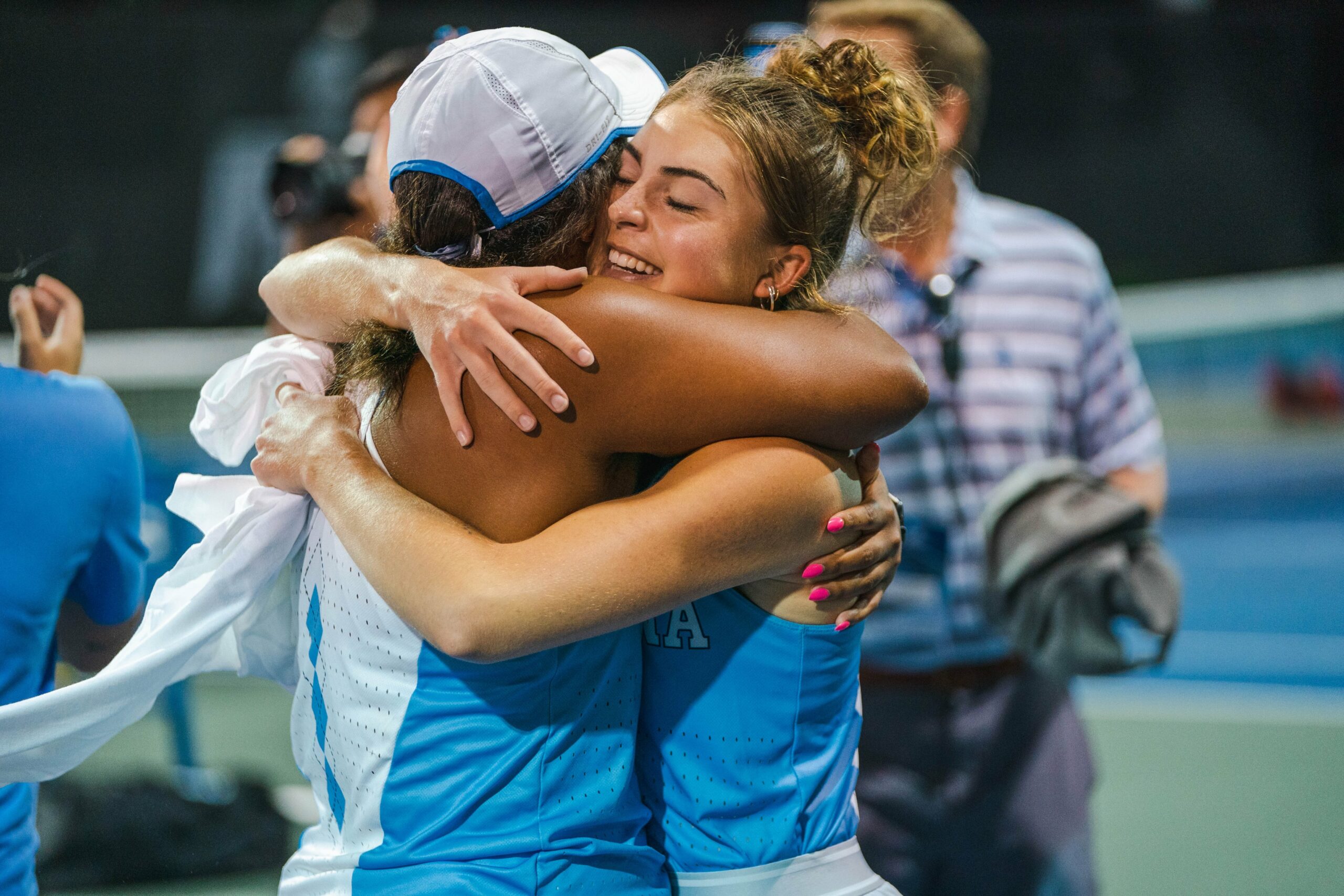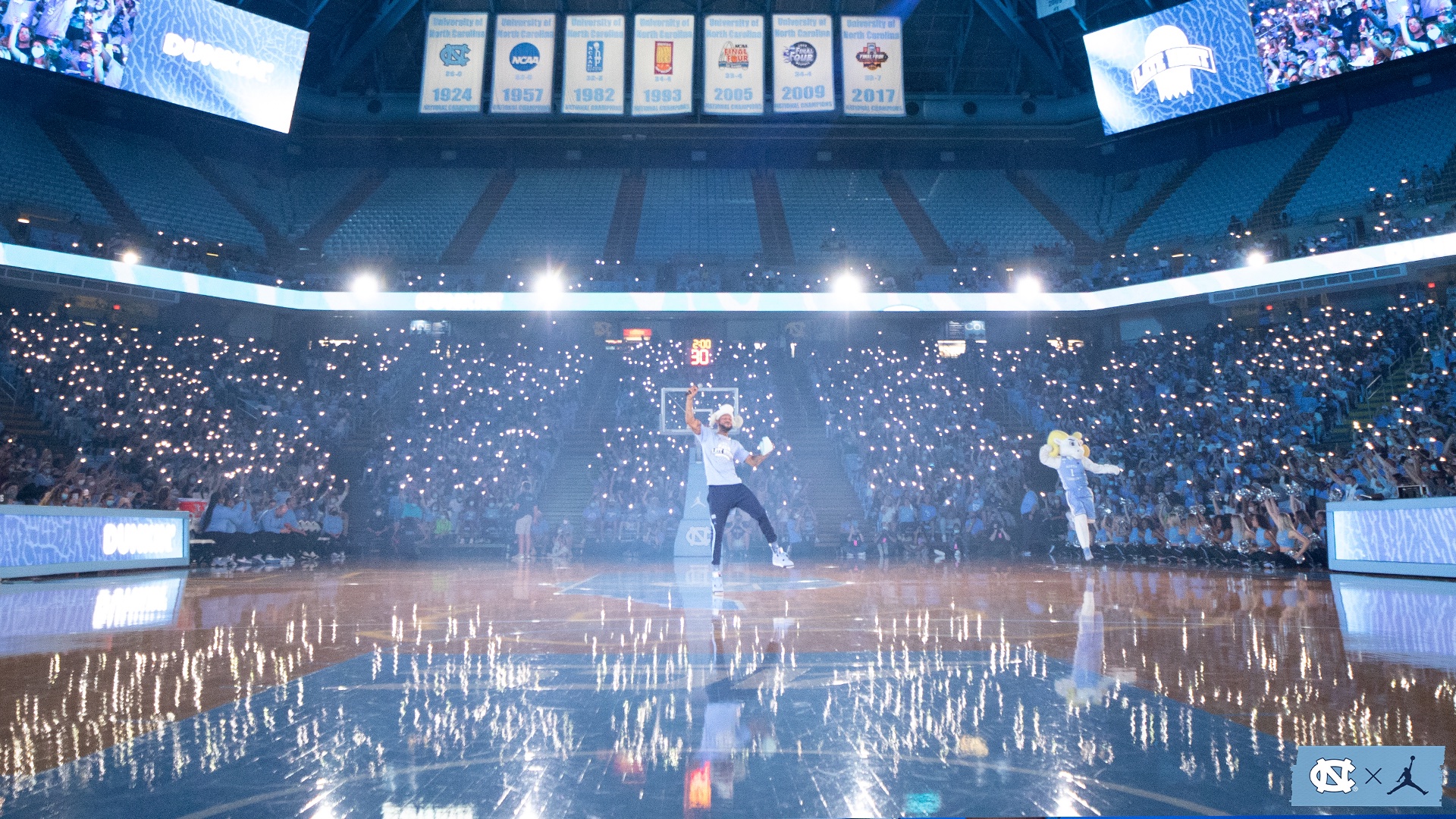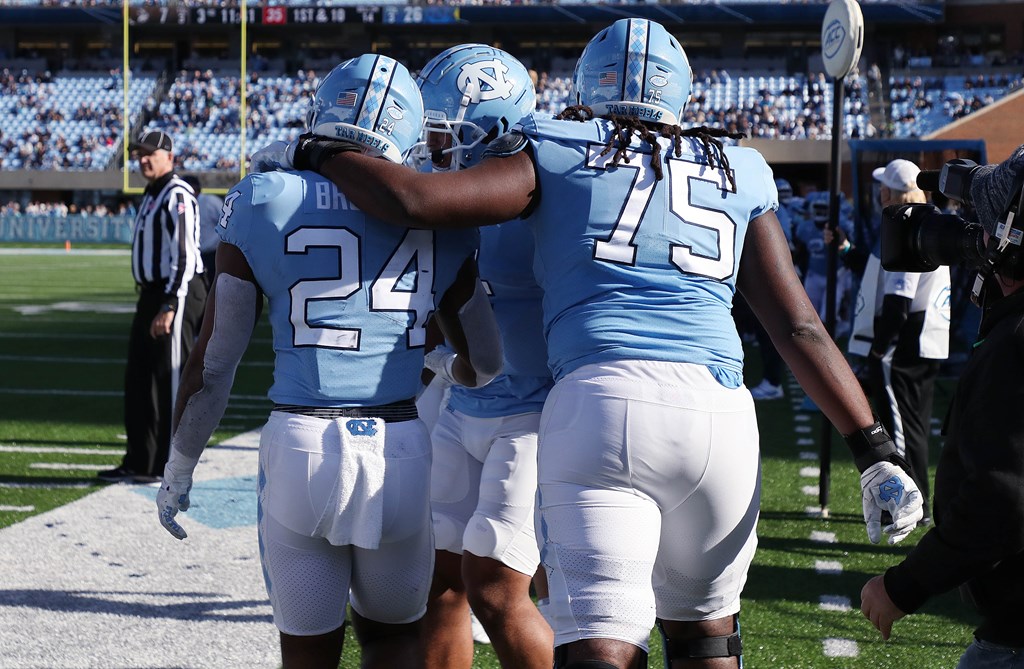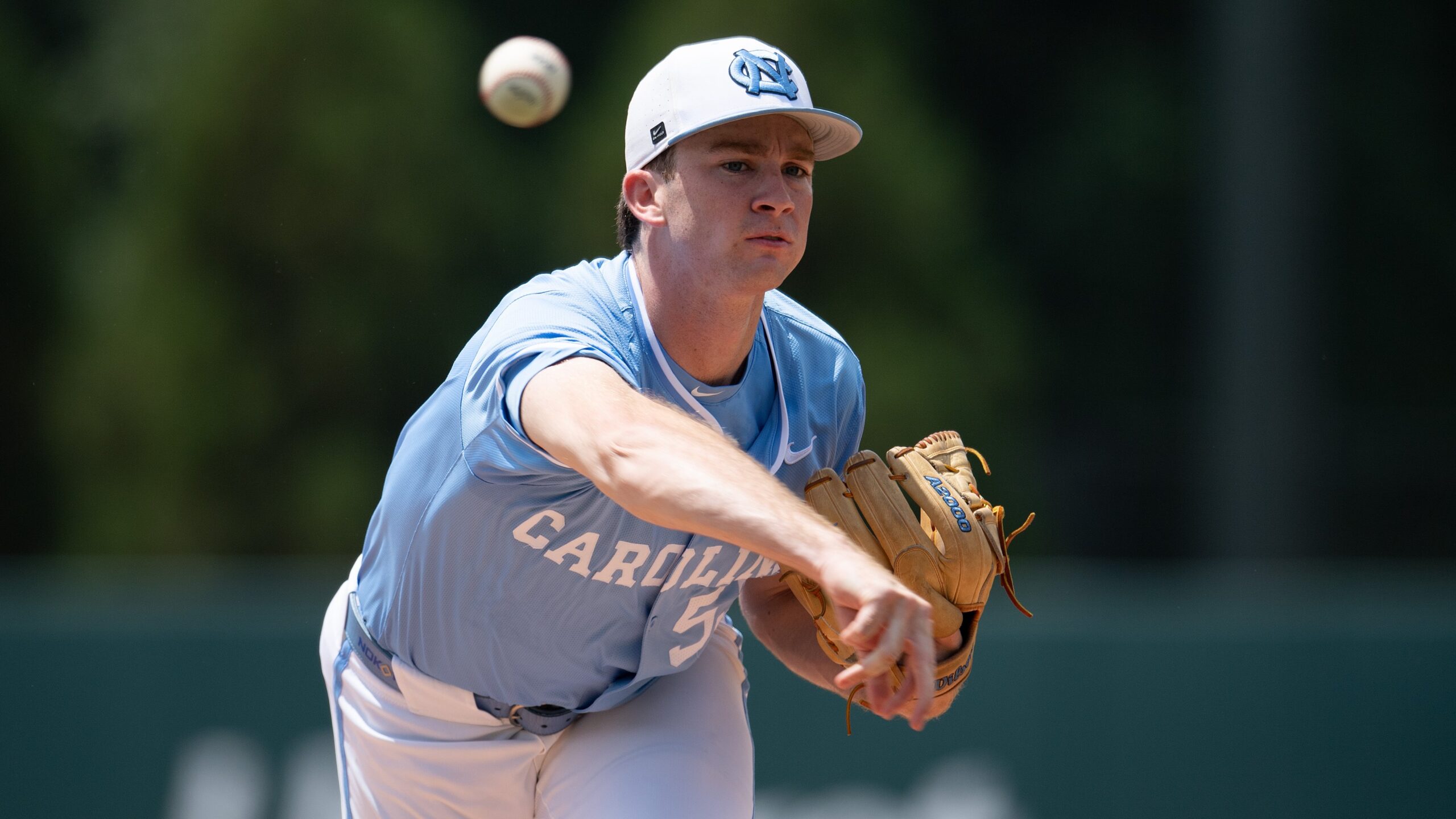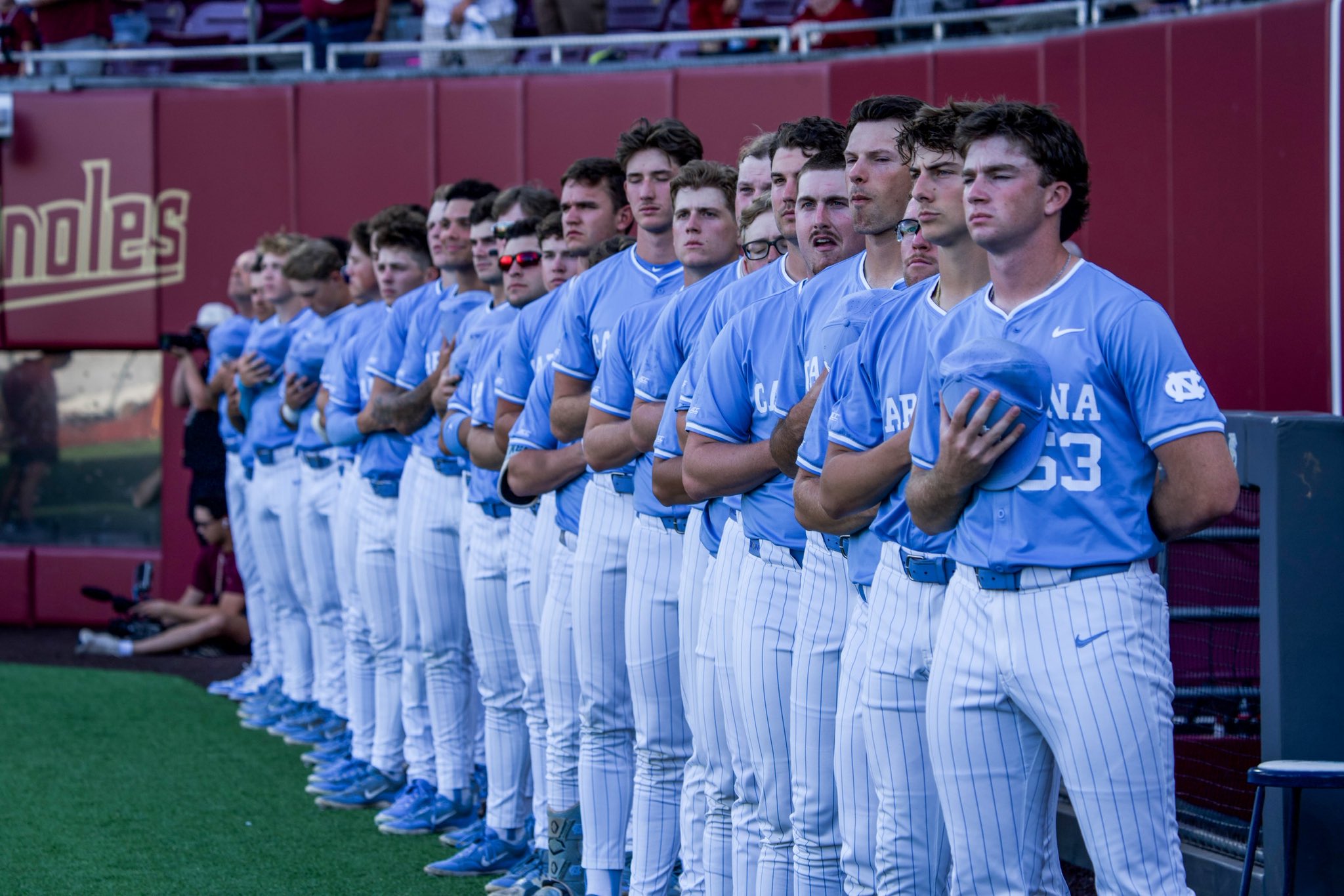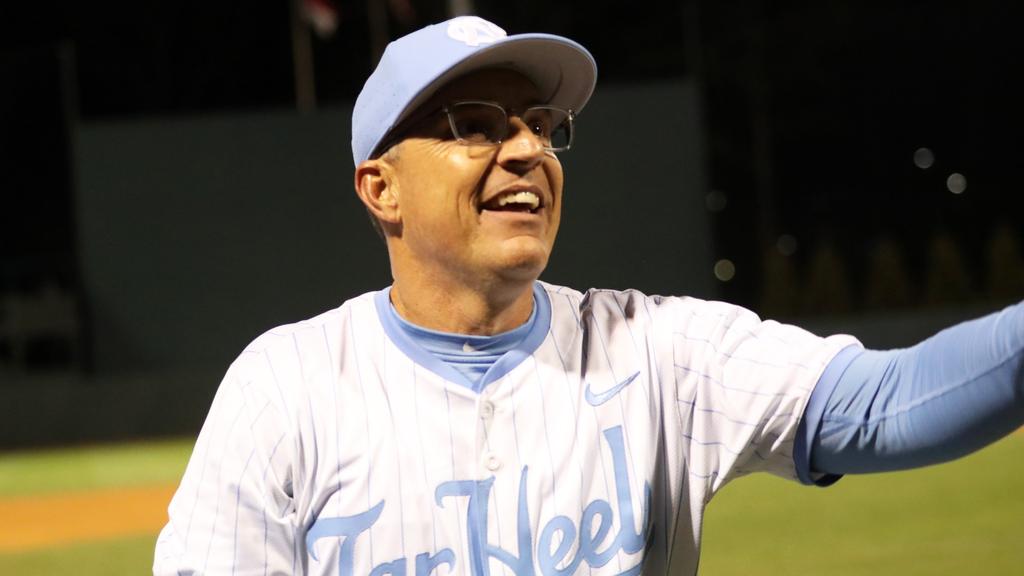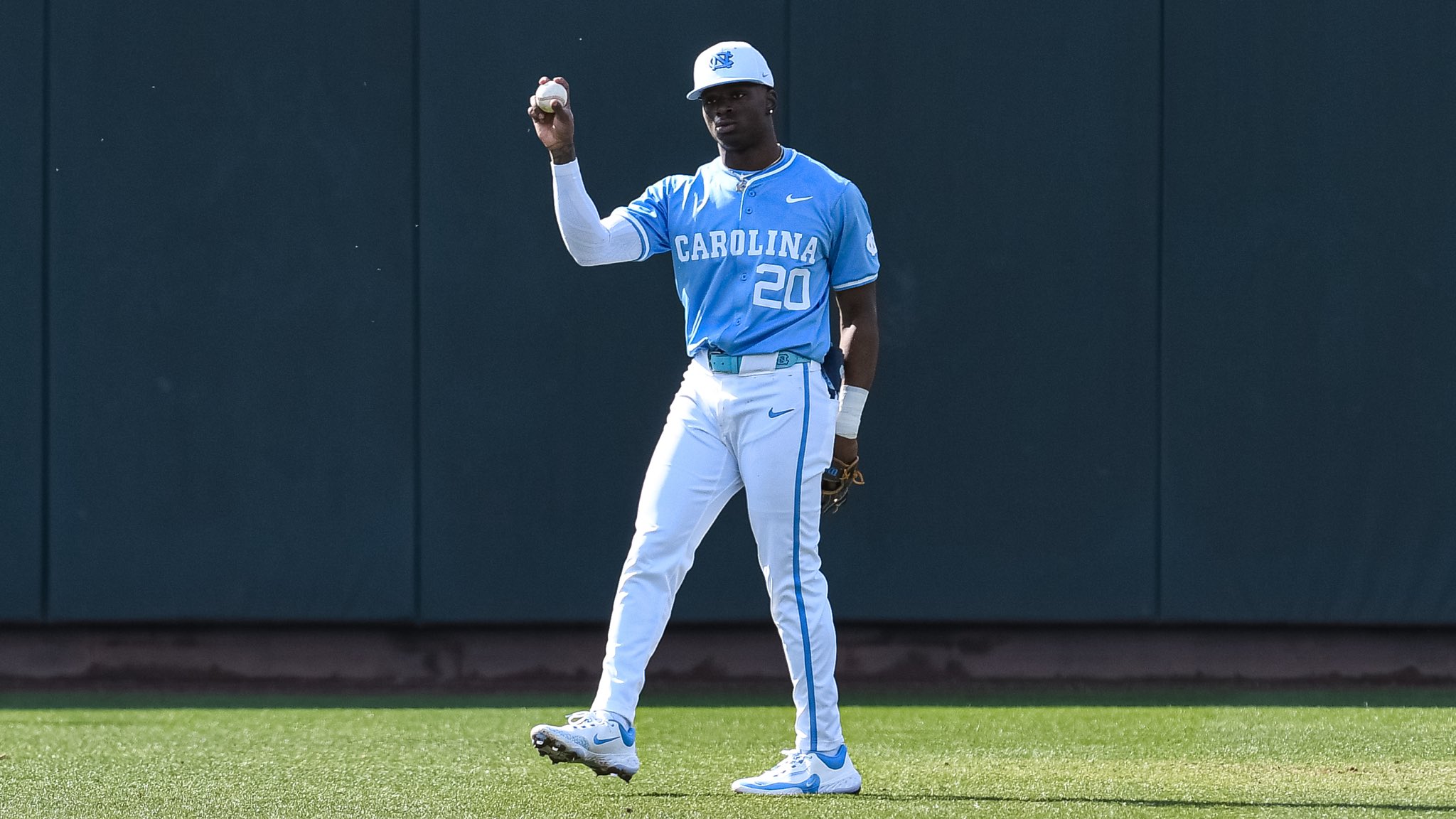
Whenever the Diamond Heels record their final out of the season, Kaleb Cost will stop hitting baseballs and start hitting wide receivers. UNC’s freshman outfielder is also a defensive back for head coach Mack Brown and the football team.
So when springtime rolled around, Cost’s workload increased: not only would baseball season be in full swing, but spring football practice would be literally just across the street. For Cost, who started for the Tar Heels in the Duke’s Mayo Bowl last December and who figures to compete for a starting job in the fall, it’s a critical stage in his career.
Now throw this into the mix: not only does Cost, Brown and baseball head coach Scott Forbes have to work with Cost’s class schedule, they also have to maneuver around an NCAA rule, one which states student-athletes can only work for their programs for a maximum of 20 hours each week.
Normally, this isn’t an issue. But for a two-sport athlete like Cost, the limit isn’t flexible. He must crunch both baseball and football into that 20-hour-per-week timeframe. It’s enough to wear anyone out, but the love of the game – or, games – keeps him going.
“It’s been a lot,” Cost told Chapelboro. “But I love these two sports, and it’s my passion. So it really comes easy to me, and I have fun doing it.”
With Cost devoting most of his spring hours to baseball, that means one of Carolina’s key returning defenders can only sit and watch spring practice much of the time. Brown said the rising sophomore does what he can, but is still hamstrung by the rulebook.
“[The Compliance Office] has to sign off on exactly how many hours he’s working per week,” the Hall of Fame head coach said earlier this spring. “And he can’t come over and volunteer for us, which is kind of strange. So he can come to practice and watch, but if he practices it has to count in his number of hours per week.”
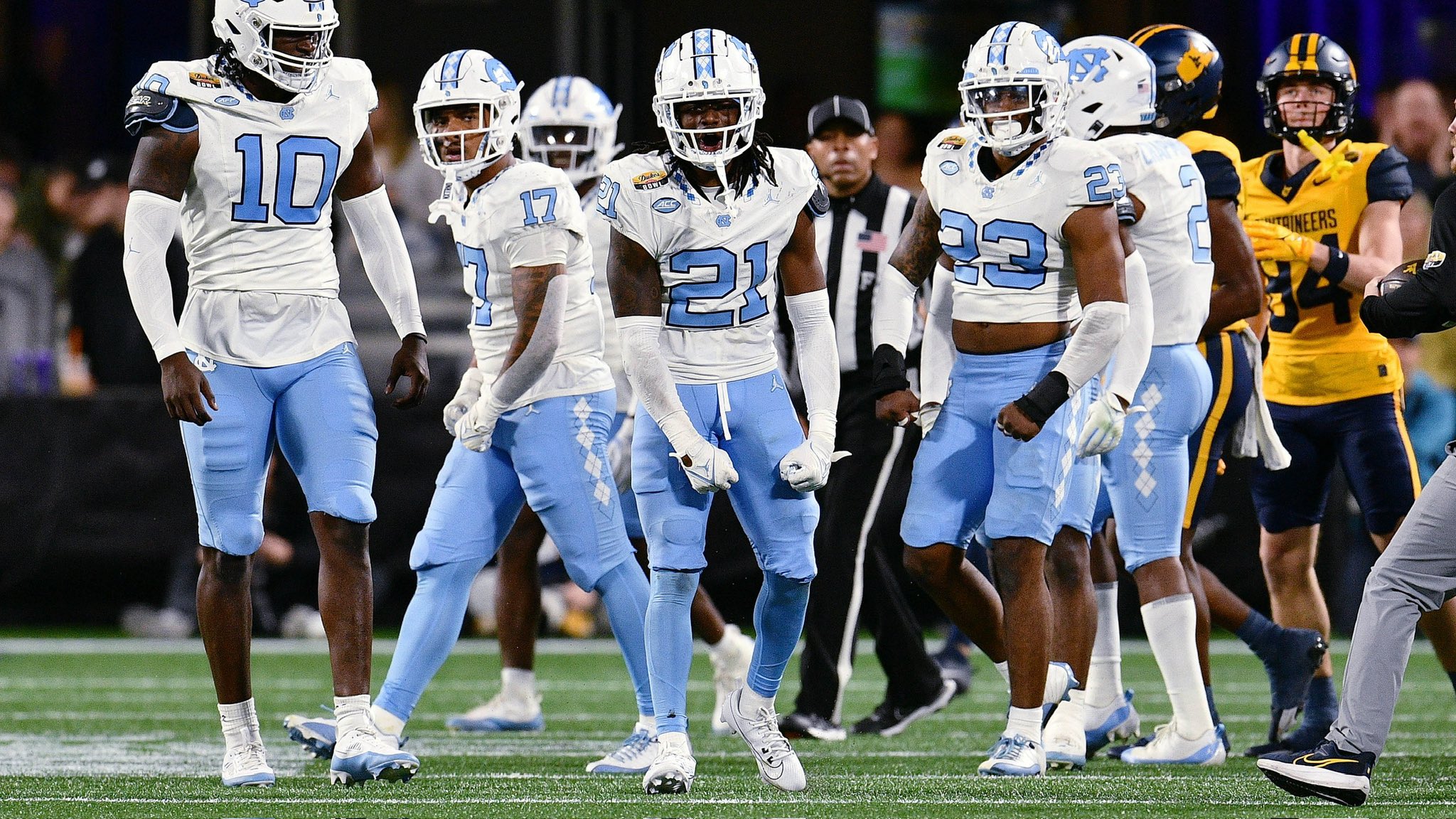
Kaleb Cost (21) started for the UNC football team in its Duke’s Mayo Bowl game in December. (Image via Kaleb Cost on Twitter)
Cost’s limited football practices don’t include much hitting, in order to save his body for baseball. Developing a body able to withstand two seasons which practically run back-to-back is a tall task, but so far Cost has been up to it.
“I live in the weight room,” he said, “and I live on the field. Conditioning, all that stuff, all that plays a part. I really take pride in it, for sure.”
It’s that work ethic which has gotten Cost on the diamond, despite missing summer baseball opportunities and Carolina’s fall practices due to football responsibilities. Combine that with a bout with mono which sidelined Cost in the winter, and Forbes estimates he entered the 2024 season around 350 at-bats behind his teammates.
And yet, here he is.
“We feel like now that he’s more acclimated, he’s more comfortable,” Forbes told Chapelboro, “he’ll be able to get down here on his own, use our facility and try to catch up a little bit this fall.”
Cost is one of several members of the football team who have expressed interest in playing for Forbes and the Diamond Heels. Freshman receiver Javarius “Vari” Green may end up playing both sports, and tight end Timmy Lawson is a highly-regarded pitcher who – as soon as he recovers from a torn ACL – will take the mound at Boshamer Stadium. The timing of the two sports makes playing both easier than doubling up on football and basketball (as a certain Pro Football Hall of Famer did in the early 2000s), but Brown acknowledged the emotional strains it can have on his players.
“We’ve told the guys: until it affects you emotionally or until it affects your grades, you can play both sports,” he said. “But if at any time you’re worn out, you’re not doing well and you’re not having fun, then you shouldn’t play.”
“I can really say that I’m used to it,” Cost said of those challenges. “Obviously, at the highest level it’s harder. But I’ve learned to adjust, and I’ve gotten comfortable in how to deal with it and attack it every single day.”
Cost remembers first picking a baseball bat – albeit a plastic one – when he was four years old. America’s pastime quite literally runs in his veins: his cousin is none other than Baseball Hall of Famer Andre Dawson. As a senior, Cost was named first team all-state in Georgia, posted a .545 batting average and set a state single-season record with 84 stolen bases. Oh yeah, and he won a state football title while molding himself into a four-star cornerback prospect.
Playing two sports in high school isn’t exactly new territory for college athletes: Cost’s teammate Vance Honeycutt was a brilliant football player, but even the future first-round pick in the MLB Draft had to hang up the pads eventually. That still hasn’t happened for Cost, who recalled the moment he realized going D1 in two sports was a distinct possibility for him.
“When I was playing travel [baseball] tournaments, I’d have coaches come up to me or contact my travel ball coach, and they’d tell me [I’m] getting looks,” he said. “And I was already getting offers in football, so I was like, ‘I’ve been doing it in high school and all my life, so might as well just keep going at the highest level.’”
It was Brown and the football Tar Heels who were in on Cost first, but his eagerness to play baseball as well meant he’d have to pass Forbes’ eye test, too.
“We had to work together [with the football program] or we weren’t gonna get him,” Forbes said. “And you can’t lie to a kid. I’m not gonna do that. I’m gonna go watch Kaleb play, and if we feel like he’s good enough, we will say, ‘Hey, we feel like you can play baseball here.’
“And fortunately for us, we felt like that. And he’s obviously good enough to play football. [The football program is] the same. I wouldn’t ask football to help us with a kid if they didn’t think he was good enough to play football too, and keep him for a week and then say, ‘Hey, that’s it.’”
Now, as baseball nears the home stretch of the regular season and football’s preseason looms on the horizon, Cost is the subject of a juggling act between two programs separated by just a few hundred yards. He has to memorize the non-verbal signs of the baseball diamond along with an unfamiliar defensive playbook installed by new coordinator Geoff Collins.
And he only has 20 hours each week to do it.
Featured image via Kaleb Cost on Twitter
Chapelboro.com does not charge subscription fees, and you can directly support our efforts in local journalism here. Want more of what you see on Chapelboro? Let us bring free local news and community information to you by signing up for our newsletter.

